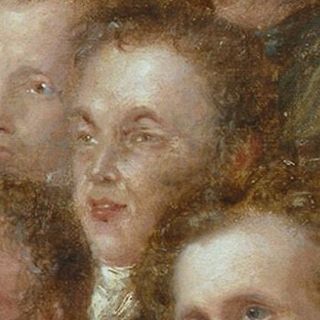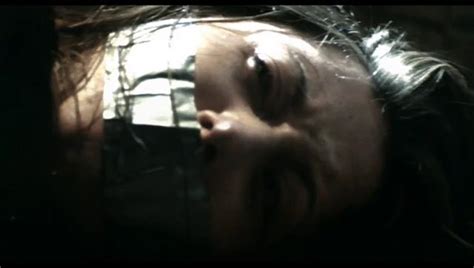A Quote by Nathaniel Hawthorne
Some attribute had departed from her, the permanence of which had been essential to keep her a woman. Such is frequently the fate, and such the stern development, of the feminine character and person, when the woman has encountered, and lived through, an experience of peculiar severity. If she be all tenderness, she will die. If she survive, the tenderness will either be crushed out of her, or—and the outward semblance is the same—crushed so deeply into her heart that it can never show itself more.
Quote Topics
Related Quotes
Tessa had begun to tremble. This is what she had always wanted someone to say. What she had always, in the darkest corner of her heart, wanted Will to say. Will, the boy who loved the same books she did, the same poetry she did, who made her laugh even when she was furious. And here he was standing in front of her, telling her he loved the words of her heart, the shape of her soul. Telling her something she had never imagined anyone would ever tell her. Telling her something she would never be told again, not in this way. And not by him. And it did not matter. "It's too late", she said.
Selfishly, perhaps, Catti-brie had determined that the assassin was her own business. He had unnerved her, had stripped away years of training and discipline and reduced her to the quivering semblance of a frightened child. But she was a young woman now, no more a girl. She had to personally respond to that emotional humiliation, or the scars from it would haunt her to her grave, forever paralyzing her along her path to discover her true potential in life.
She was like me in lineaments-- her eyes Her hair, her features, all, to the very tone Even of her voice, they said were like to mine; But soften'd all, and temper'd into beauty; She had the same lone thoughts and wanderings, The quest of hidden knowledge, and a mind To comprehend the universe: nor these Alone, but with them gentler powers than mine, Pity, and smiles, and tears-- which I had not; And tenderness-- but that I had for her; Humility-- and that I never had. Her faults were mine-- her virtues were her own-- I loved her, and destroy'd her!
Feminism has nothing at all to do with being 'feminine.' Feminine means accentuating the womanly attributes that make women deliciously different from men. The feminine woman enjoys her right to be a woman. She has a positive outlook on life. She knows she is a person with her own identity and that she can seek fulfillment in the career of her choice, including that of traditional wife and mother.
She wondered whether there would ever come an hour in her life when she didn't think of him -- didn't speak to him in her head, didn't relive every moment they'd been together, didn't long for his voice and his hands and his love. She had never dreamed of what it would feel like to love someone so much; of all the things that had astonished her in her adventures, that was what astonished her the most. She thought the tenderness it left in her heart was like a bruise that would never go away, but she would cherish it forever.
Every woman whether rich or poor, married or single, has a circle of influence within which, according to her character, she is exerting a certain amount of power for good or harm. Every woman, by her virtue or her vice, by her folly or her wisdom, by her levity or her dignity, is adding something to our national elevation or degradation. A community is not likely to be overthrown where woman fulfills her mission, for by the power of her noble heart over the hearts of others, she will raise that community from its ruins and restore it again to prosperity and joy.
When she closed her eyes she felt he had many hands, which touched her everywhere, and many mouths, which passed so swiftly over her, and with a wolflike sharpness, his teeth sank into her fleshiest parts. Naked now, he lay his full length over her. She enjoyed his weight on her, enjoyed being crushed under his body. She wanted him soldered to her, from mouth to feet. Shivers passed through her body.
My mother had been an incredibly bright kid but her family couldn't afford for her to stay in education. So she lived through me. She was a very remarkable woman and I owe a huge debt to her. She was unashamed about delighting in the fact that I was intelligent, and she drove and pushed me. She was also completely indifferent to popularity.
I will never have a photograph of her to carry around in my pocket. I will never have a letter in her handwriting, or a scrap-book of everything we've done. I will never share an apartment with her in the city. I will never know if we are listening to the same song at the same time. We will not grow old together. I will not be the person she calls when she's in trouble. She will not be the person I call when I have stories to tell. I will never be able to keep anything she's given to me.
Occasionally, on screen, Barbara [Stanwyck] had a wary, watchful quality about her that I've noticed in other people who had bad childhoods; they tend to keep an eye on life because they don't think it can be trusted. After her mother was killed by a streetcar, she had been raised in Brooklyn by her sisters, and from things she said, I believe she had been abused as a child. She had lived an entirely different life than mine, that's for sure, which is one reason I found her so fascinating. I think her early life was one reason she had such authenticity as an actress, and as a person.
One day I'll give birth to a tiny baby girl and when she's born she'll scream and I'll tell her to never stop I will kiss her before I lay her down at night and will tell her a story so she knows how it is and how it must be for her to survive I'll tell her to set things on fire and keep them burning I'll teach her that fire will not consume her that she must use it
One of my aunties inspires me beause of how easily she shows her emotions, and she isn't ever afraid to cry. My mum, for her work ethic - she might not show her emotions in public very much, but she's a total power woman. My grandma, who watched four of her children die before her, she's a powerhouse.
She regretted having taken his hand, she wanted to get away from there as soon as possible, to hide her shame, never again to see that man who had witnessed all that was most sordid in her, and who nevertheless continued to treat her with such tenderness. But again she remembered Mari's words: She didn't need to explain her life to anyone, not even to the young man standing before her.
I found her lying on her stomach, her hind legs stretched out straight, and her front feet folded back under her chest. She had laid her head on his grave. I saw the trail where she had dragged herself through the leaves. The way she lay there, I thought she was alive. I called her name. She made no movement. With the last ounce of strength in her body, she had dragged herself to the grave of Old Dan.
In her heart she is a mourner for those who have not survived. In her soul she is a warrior for those who are now as she was then. In her life she is both celebrant and proof of women's capacity and will to survive, to become, to act, to change self and society. And each year she is stronger and there are more of her.
At that moment a very good thing was happening to her. Four good things had happened to her, in fact, since she came to Misselthwaite Manor. She had felt as if she had understood a robin and that he had understood her; she had run in the wind until her blood had grown warm; she had been healthily hungry for the first time in her life; and she had found out what it was to be sorry for someone.






































